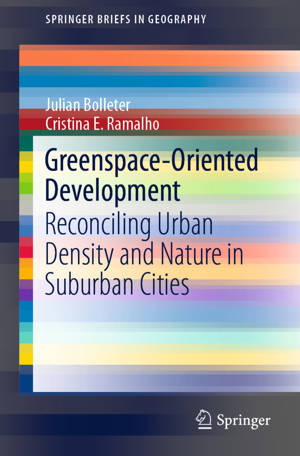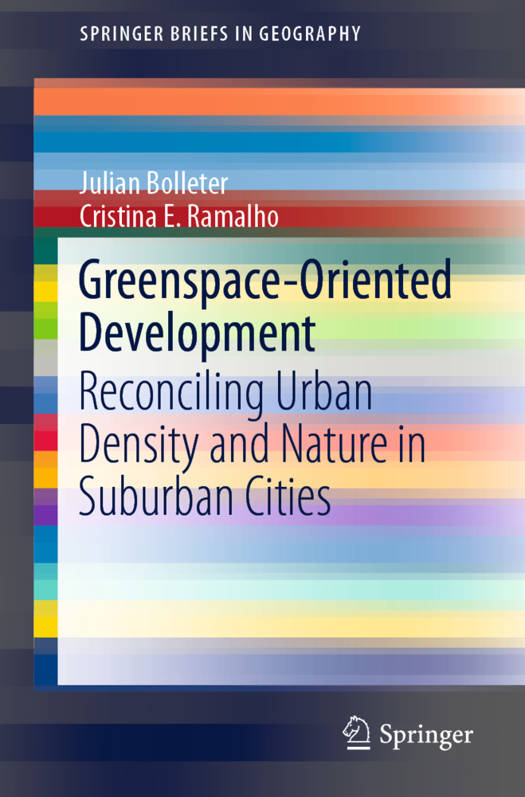
Bedankt voor het vertrouwen het afgelopen jaar! Om jou te bedanken bieden we GRATIS verzending (in België) aan op alles gedurende de hele maand januari.
- Afhalen na 1 uur in een winkel met voorraad
- Gratis thuislevering in België vanaf € 30
- Ruim aanbod met 7 miljoen producten
Bedankt voor het vertrouwen het afgelopen jaar! Om jou te bedanken bieden we GRATIS verzending (in België) aan op alles gedurende de hele maand januari.
- Afhalen na 1 uur in een winkel met voorraad
- Gratis thuislevering in België vanaf € 30
- Ruim aanbod met 7 miljoen producten
Zoeken
Greenspace-Oriented Development
Reconciling Urban Density and Nature in Suburban Cities
Julian Bolleter, Cristina E. Ramalho
€ 62,95
+ 125 punten
Omschrijving
Transit-Oriented Development (TOD) planning principles have informed Australian city planning for over two decades. As such, policy makers and planners often unquestioningly apply its principles. In contrast, this book critiques TOD and argues that while orientating development towards public transport hubs makes some sense, the application of TOD principles in Australia has proven a significant challenge. As a complementary strategy, the book stakes out the potential of Greenspace-Oriented Development (GOD) in which urban density is correlated with upgraded green spaces with reasonable access to public transport. Concentrating urban densification around green spaces offers many advantages to residents including ecosystem services such as physical and mental health benefits, the mitigation of extreme heat events, biodiversity and clean air and water. Moreover, the open space and leafy green qualities of GOD will ensure it resonates with the lifestyle aspirations of suburban residents who may otherwise resist urban densification. We believe in this way, that GOD could be an urban dream that befits the challenges of this 21st century.
Specificaties
Betrokkenen
- Auteur(s):
- Uitgeverij:
Inhoud
- Aantal bladzijden:
- 94
- Taal:
- Engels
- Reeks:
Eigenschappen
- Productcode (EAN):
- 9783030296001
- Verschijningsdatum:
- 8/10/2019
- Uitvoering:
- Paperback
- Afmetingen:
- 157 mm x 267 mm
- Gewicht:
- 202 g

Alleen bij Standaard Boekhandel
+ 125 punten op je klantenkaart van Standaard Boekhandel
Beoordelingen
We publiceren alleen reviews die voldoen aan de voorwaarden voor reviews. Bekijk onze voorwaarden voor reviews.









